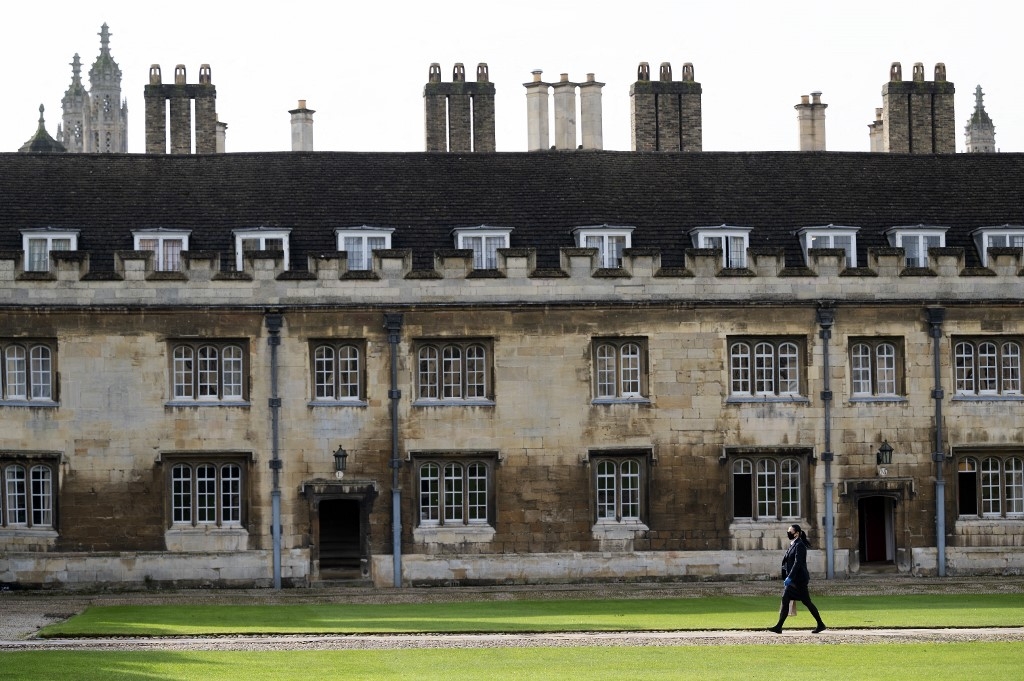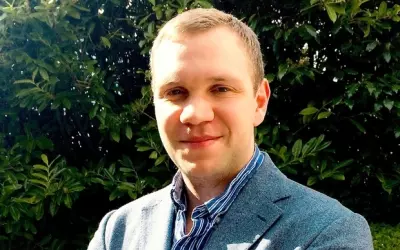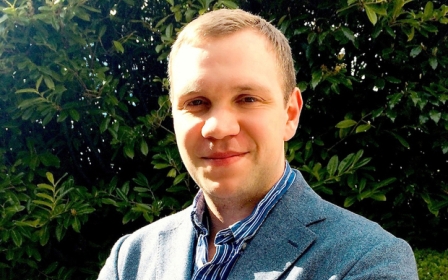UK academic Matthew Hedges criticises Cambridge plans to accept £400m from UAE

A British academic who was imprisoned by the United Arab Emirates says plans by the University of Cambridge to accept a multi-million dollar donation from the UAE would be used to "whitewash" the Gulf state's poor human rights record.
Internal documents seen by The Guardian revealed the UAE has offered Cambridge a donation worth £400m ($550m) - the single biggest donation the university has ever received.
Cambridge University, one of the wealthiest in the world, has not approved the deal, which will span over the course of 10 years.
'The problem is that the UAE will use Cambridge’s name and an association with them for their own gain, namely whitewashing their terrible human rights record'
- Matthew Hedges
If the plan is given the green light, the university will create a UAE-Cambridge Innovation Institute with "joint UAE and University of Cambridge branding" and focus on education, Islamic art and culture, engineering and innovation.
Matthew Hedges, a PhD student at Durham University, was arrested by the UAE in 2018 when he travelled to Dubai for research purposes.
New MEE newsletter: Jerusalem Dispatch
Sign up to get the latest insights and analysis on Israel-Palestine, alongside Turkey Unpacked and other MEE newsletters
He fears the partnership could, if approved, be used to bolster the UAE's reputation. The country already faces criticism for the imprisonment of Emirati academics and human rights activists.
"The problem is not so much that they receive funds from Gulf regimes like the UAE, but rather that the UAE will use Cambridge’s name and an association with them for their own gain, namely whitewashing their terrible human rights record," Hedges told Middle East Eye.
"There is also no guarantee that academic freedom and independence can be guaranteed when it comes to receiving these kinds of funds, and that does a lot more damage to the university than not receiving the funds in the first place."
Hedges, who was detained in Abu Dhabi for eight months on spying charges, said it was "unacceptable" that Cambridge is discussing the donation when people still languish in Emirati prisons.
"It is sad and tiring to see that academic institutions are still entertaining the idea of partnering with the UAE, a regime whose human rights abuses are so well-documented that they are impossible to ignore," said Hedges.
"The Emiratis are especially egregious when it comes to crimes committed towards freedom of expression and speech, a fundamental tenet of academia. Especially given that they imprisoned and tortured me for carrying out academic research, a concept the UAE security forces who detained me could not understand."
'Strings attached'
According to the documents seen by The Guardian, Cambridge acknowledged the different understanding the university and the UAE have on "academic freedom and institutional autonomy" and the potential reputational damage posed by the collaboration.
The institution also noted the challenges posed by Brexit, Covid-19 and funding constraints in Britain.
"Ultimately, and as Cambridge University has already admitted, there are clear restrictions with human rights abuses and academic freedom. Therefore, Cambridge University cannot guarantee physical safety or the academic freedom of its students and staff in the UK or UAE," said Hedges.
"Therefore, there are already conditions or 'strings attached' built into the agreement as a result of this. It is a clear example of cooptation, as the university and its staff will then be reliant upon it for their jobs and will therefore not jeopardise this opportunity."
Human rights groups have also voiced concern over the proposed donation.
Sofia Kaltenbrunner, a campaign manager for the International Campaign for Freedom in the UAE, said donations from the Emiratis could "dictate a research agenda".
“Cambridge University should not accept funding from the UAE, a country where freedom of expression and academic freedoms are virtually non-existent, and with dozens of university lecturers, including Dr Nasser bin Ghaith and Dr Mohammed al-Roken, serving long prison sentences for their peaceful human rights advocacy," said Kaltenbrunner.
"Through investments in education, the UAE not only whitewashes its systematic human rights abuses but also manages to dictate a research agenda and to influence impressionable young minds.
"Cambridge University has a duty of care to ensure that its students are not influenced by a highly repressive authoritarian regime.”
Middle East Eye delivers independent and unrivalled coverage and analysis of the Middle East, North Africa and beyond. To learn more about republishing this content and the associated fees, please fill out this form. More about MEE can be found here.





